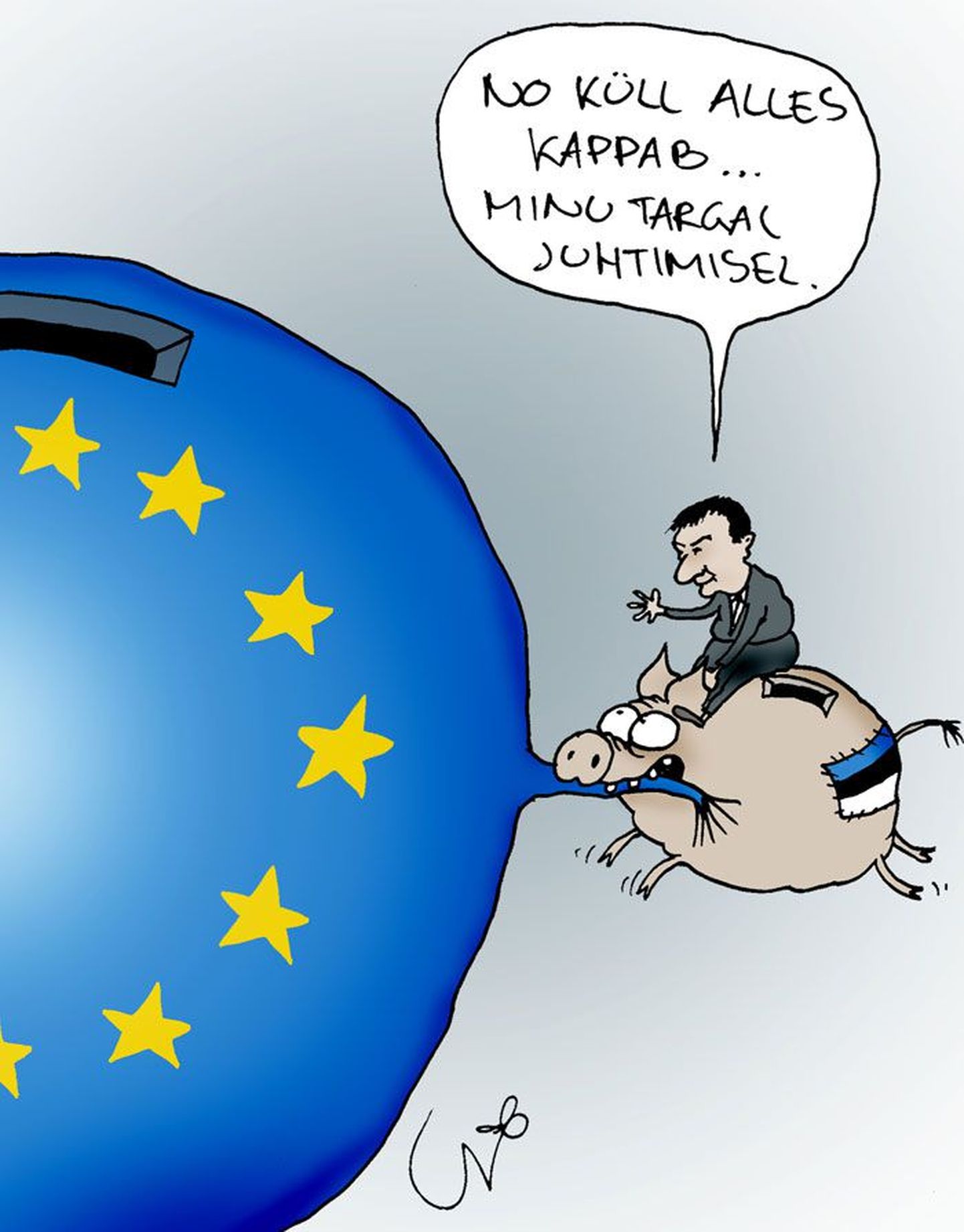
Collecting own resources would diminish impact of member states’ domestic policy on EU.

Collecting own resources would diminish impact of member states’ domestic policy on EU.
In past weekend’s Postimees opinion and culture extra AK, economist Urmas Varblane underlines Estonia’s need to seriously consider how to shake entitlement addiction as we shift from being net beneficiaries to net contributors. These last years, European money’s share in Estonian budget has amounted to 16-18 per cent. Simple math reveals that without EU benefits our budget only contains ca 6 per cent for supporting new initiatives. Thus, the problem is serious. Luckily, we have minimum seven years to get adjusted to the new situation.
Firstly, Irish experience tells us that even if our GDP should revive at above average speed, this would not automatically make us net contributor. Ireland started its EU path from a level quite similar to ours: upon entry in 1973, their GDP was only a half of EU average, now exceeding 120 per cent. However, Ireland only turns net contributor in a couple of years. Which means that EU won’t force net beneficiaries into net contributors at the expense of citizens’ peace of mind.
However, according to entrepreneur Jüri Käo at recent economics conference on euro’s gains and pains (Euroraha võlud ja valud), Estonia might indeed become net contributor for the next financial period – as that would prove we’d become wealthy enough. And, in such case, it would be embarrassing to remain net beneficiary, as playing a poor relative would only amuse ourselves – at best.
Secondly, there is something in the air in Brussels’ corridors smelling like this seven-year-budget (starting next year) will be the last one compiled like this. How to proceed? is no doubt a question of serious concern right now, as the current euro-budget paid by member state contributions seems to fail political demands – as evidenced by European Parliament’s decision (on Wednesday) to reject the budget framework.
EU currently lacks own resources, and should such be desired, a tax would be established. We could, for instance, try to imagine what kind of an EU we would have if every employee should, in addition to income tax, social tax, pension insurance tax, and unemployment insurance tax, soon face a new one – union tax. How to do that is a technical issue. Whether income tax would be reduced by that per cent, or would tax rise risk be taken – that would take a political decision
The member-state-payments’ money is collected by way of various taxes, anyhow. However, should people see «EU money» on their tax declarations – would they agree to finance roads they never travel, lifestyles they never enjoy or business not worthy its definition? Often, member states use EU budget for channelling sensitive local issues.
Collected as taxes, own resources would make EU citizens more demanding towards Brussels’ decisions, but at the same time both commission and parliament may gain greater independence than member states- governments. No doubt, tax issues cannot be approached as simple math. However, we might as well start thinking on what the future financial perspective will look like.